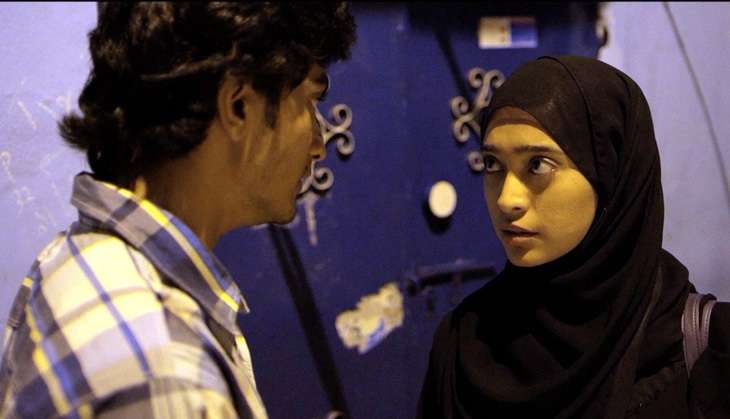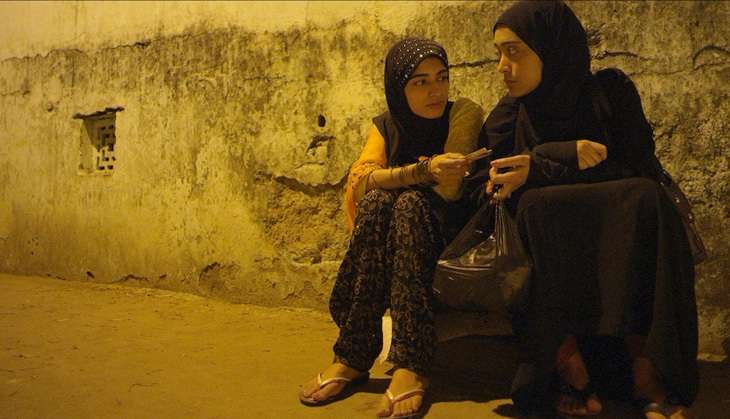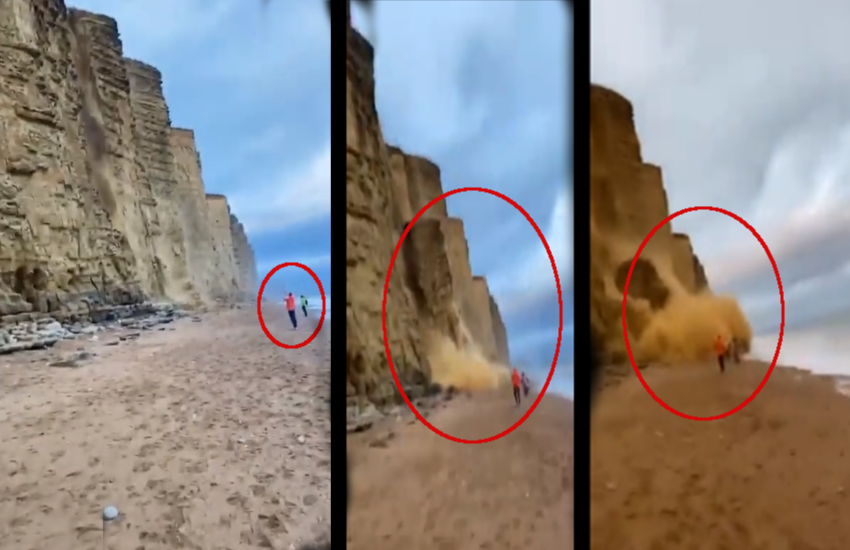Payal Sethi on her film Leeches, one day brides and working with Mira Nair

Payal Sethi, who began her career under the tutelage of veteran director Mira Nair, is back with a bang. After producing, directing and writing Grant St. Shaving Co., in 2010, Sethi is back this year with Leeches, a 27-minute film set against the backdrop of Hyderabadi one-day brides and the practice of temporary marriages. The film, currently playing at the Dharamshala International Film Festival, has been creating ripples around the world since January 2016.
While Grant St. Shaving Co. took shape in her cramped New York apartment, Leeches has come out of one-year stint spent living in Hyderabad. Though the movie is a fictional tale, it's told with such conviction that you'd think it was based on a true story.
Sethi wasn't always into films though. It was while pursuing creative writing at Vassar College, that a lecture on Film History & Theory during her sophomore year completely changed her track. A year later she was off to NYU's Tisch School of the Arts, enrolled in the 16mm Sight & Sound program.
Turning down an MFA from Columbia, Sethi persevered with Mira Nair, which turned out to be the right decision. Sethi has been inspired by international filmmakers such as Wong Kar-wai and Jean-Luc Godard and grew up watching Dev Anand films, with her mother, who is a huge film buff.
While her first film had Mira Nair backing her, the second is completely crowdfunded. Not one to sit idle, she has two feature-length films in the pipeline, Maya Deluxe and Ooty Queen. The future seems promising.
Here, Sethi talks to Catch about her movie Leeches, the story behind it and traveling from country to country to show her movie to different audiences.

SB: Even working in the media, I haven't heard too much about one-day brides in India, besides Hyderabad. It seems more of a phenomenon in the Middle East. In the course of your research and scripting, how prevalent did you find it in India?
PS: My research was mostly focused on Hyderabad and I had the help of an NGO based in the old city called Shaheen. However, I also came across a series of articles by Mid-Day, which conducted a sting operation in Mumbai, where this practice is also prevalent. I'm confident that this practice is still propagated in any poor Muslim community in major cities, which are frequented by Arab and African businessman. In fact, there have been recent stories of Somalian students participating in this racket in Hyderabad.
Naturally, there are very few girls who speak out about being victimized, but when one does there is usually a media flare, which then dies down since this is, after all, I'm sad to say, old news. Through Shaheen's help I was able to visit slums in the remotest outskirts of Hyderabad to understand why this system is still functioning. The simple answer, if there is such a thing, is abject poverty. However, in these areas, the level of poverty is just unimaginable until you see it for yourself - it sets a new level for what we refer to as the poverty line; these people aren't just below it, they aren't even in the vicinity by a hundred miles.
SB: Is the leech practice real? Where do they practice it?
PS: I was living in Hyderabad in 2011 when I read a short news article on temporary marriages - an old custom that has found new roots among poor families in Muslim ghettos, where rich patrons pay for an arrangement brokered by efficient agents, while a pliant cleric draws up both marriage and divorce contracts simultaneously, so that the businessman is free to end the sham union whenever he is ready to leave the city.
I was thinking of writing a feature at the time, where one of the characters in the film would be a young Muslim girl who is about to be married off like this. I had already spent a year working on another feature script when my co-writer encouraged me to make another short. I had narrated the feature story to him and the subplot with the girl stayed in his thoughts. He added the leeches to the mix and suddenly, this made the story very unique.
SB: Clearly your film is informed by a feminist perspective, especially the ending. Could you elaborate?
PS: The ending of the film came together during the edit. Originally, we had a very different scene in mind, which takes place in the hotel lobby where the film begins. Before we started filming, however, we realized that this would be too melodramatic. So we improvised during the shoot that night and got away with just enough footage to bring the ending together.
I have to say that I love the ending - it has the energy that I wanted to capture and it cements Raisa's courage and spirit, which is currently the only hopes for girls who become trapped in these situations. Nor did I want to offer retribution to the audience in showing what I did in the climax (the bedroom scene), which is again sufficiently ambiguous to allow the audience to interpret it the way they choose.
SB: The short film shows that a lot of thought and effort has gone into the choosing the location of the shoot and the kind of direction. Where was the film shot and why was that particular location chosen?
PS: We shot the film entirely on location, save for the hospital scene. Other than the casting, which I was very particular should be authentic, both in terms of the faces and language of the people playing these characters; many of whom were amateur or non-actors, the locations were a huge challenge. We lost three key locations just as we were ready to shoot. It's hard enough to believe that this should happen once, but it happened three times on our shoot. I do think that some films demand a lot of you, in some crazy cosmic balance funda way. This was certainly the case with Leeches.
Working with amateurs meant long & intense rehearsals. I wanted to let the characters, scenes and dialogues sink into the actors' skins. On set, we didn't have to worry about getting lines right, though shooting in tiny cramped rooms, which were our sets for the most part, was the other big challenge. Prior to casting and location scouting I had spent months in actual bastisto know exactly what I needed to get the authenticity I wanted in this film. I'm very pleased to hear that it comes through.
The process of researching a place and exploring a story through real-life situations has become an important part of my filmmaking process. I would definitely continue this aspect of preparation in future films.

SB: The lead actress, Sayani Gupta, demonstrates the right amount of emotion but also controlled. How difficult was it to pick someone for the role and convince them to play it?
PS: I sent Sayani the script and she came in for an audition the very next day. When she walked in the door I jumped - she had arrived dressed in a salwar-kameez, a black dupatta wrapped around her head. I saw my protagonist, Raisa, in that moment and it took my breath away. Her audition was nothing short of brilliant and she was on board immediately. Her participation and performance on set were equally impressive. In fact, during pre-production, I invited her to conduct a workshop with the other actors.
Sayani is a powerhouse of talent, as is evident from the path that her career has started to take, but other than her chilling, albeit brief, performance in Leena Yadav's Parched, I do think this is her best performance in a lead role; at least that is what I keep hearing from everybody familiar with her work. Sayani, being Bengali, has an incredibly malleable face, and large, expressive eyes. She was always conscious of making her eyes smaller, as the camera tends to magnify everything.
As a result, her performance in the film is understated, nuanced, and powerful. Audiences the world over have told me that they were disturbed by the film and invariably, the next question I get is, who is that actress? She is superb.
SB: Have you shown the film in areas where these one-day marriages are a practice?
PS: Not as yet. I have been travelling with the film all over the world - Finland, Zanzibar, Seoul, Belgium - so I haven't been able to make the trip back as yet. I'm planning something around the iTunes release of the film, which will happen by the end of the year, so that we can raise funds for Shaheen through proceeds from the digital sales.
SB: Your film has been playing in many different countries around the world and winning awards at various festivals. Why haven't you considered an Oscar run as yet?
PS: I was selected at Palm Springs Shortfest, which is an Oscar qualifying festival IF you win the award. We didn't win there, but we did pick up the coveted Brussels Short Film Festival Grand Prix Internationale Award. It is a bit of a procedure to enter the Oscar race for any film, but I'll get around to it soon, and we haven't ruled it out as yet.
SB: What has been the reaction of people (non-film festival audiences) to the film?
PS: Incredible. Full of curiosity, anger, disbelief. Most assume that this is something that used to happen, but are shocked to learn that the practice is still prevalent. I wasn't aware at first that these types of marriages are not illegal, and therefore can't be stopped by law. I had never heard of the human leeches in Hyderabad's old city - foreign businessmen who prey on the virginity of underage girls under the guise of contract-marriage - until I moved there in 2011. It was hard to stomach that such an archaic practice is still propagated today under Sharia Law, which states that a man may have up to four wives at a time.
Twisting this 'law' to suit their predilection for adolescent virgins, I learnt that these men take brides for short periods, with rates varying according to the duration of the marriage & the perceived beauty of the girl. They nicknamed the girls "one day brides". Digging a bit deeper, it appeared that an intricate web of opportunists facilitates this flesh trade, including many clerics. Most unfortunate of all was the realization that certain female members of the community act as pimps in these liaisons. My forays around the narrow gullies around the Charminar would never be the same again -- I couldn't stop myself from wondering how many of the burkha clad girls I passed were victims of this exploitative system.

SB: How have men reacted to the film?
PS: Men are the most disturbed in fact, though it is hard to separate the audience's reaction by gender, to be honest. I've had several great discussions with men and women about why, how and where this happens. There is usually a sense of outrage, which I am sure fizzles out once they leave the theatre. However, just the fact that they are now aware of this practice, when they weren't before, is a positive aspect of showing the film.
SB: What's been your favourite festival you've shown your film at and why?
PS: Every festival has been unique and fulfilling - especially the ones I could be present at for Q&A's and interactions - from Finland to Seoul to Delhi. Zanzibar was special because the festival showed the film twice, once for ticket holders and the second time at this beautiful old amphitheatre in front of The Fort, at night, to the general public, who come and watch whatever is playing.
During the Q&A I had a terrific interaction with the audience who informed me that this is a practice that they are unfortunately all too familiar with in their own Muslim communities in East Africa. So there was a sense of universal identification there that I felt for the first time.
We also screened the film as part of the Bengaluru International Film Festival in a special program, which was attended by young students, many of them young girls, who were brought in as part of a class trip to watch my film. I spent the entire time watching their faces in the dark because I saw that they were relating to the young women on screen. Their expressions were worth a hundred awards. The bathroom scene, which I cannot describe in detail because it will give the film away, is the one scene where audiences all over the world seem to react in the same way, they cry out loud and physically cringe when Raisa does the unthinkable.
SB: How has the reception been different from your award-winning debut Grant St. Shaving Co. six years ago, to today, when Leeches is earning accolades?
PS: Both very different films, with Leeches having earned a lot more recognition in terms of festivals and awards. However, even after Grant St., I used to get messages from audience members I had not met saying that it was an emotional experience watching the film. Leeches is often described as 'disturbing' or 'shocking' or 'powerful', but with Grant St. several viewers called up their fathers (it was a father-daughter story), to connect with them. So it's good to know I'm making a connection with my audience. That will always be paramount to me.
SB: Has working under Mira Nair shaped your film-making in any way. If so, how?
PS: Working with Mira Nair was like being in a rigorous film school. In fact, I took the position at Mirabai Films upon the suggestion of the Head of the Columbia University's film department, Dan Kleinman, after I was selected for the MFA Program and received a simultaneous job offer from her company. Mira is a wonderful person and an inspiring filmmaker, but it was only when I made my own short film that I truly understood what I had learnt from her.
Watching her work on and off set offered me rare access to her interactions with actors and taught me so much more than I could realize at the time. It was only when I was in the midst of filming my first film that I fully understood the lessons I learnt from her, lessons that still help me to this day. It was a one-of-a-kind learning experience. I worked with Mira for five years as a production and development executive on movies from Monsoon Wedding to The Namesake. The experience of observing and participating on each film, from conception to release, has certainly shaped my own path as a filmmaker in myriad ways.
SB: Lastly, what's your next project, if there is one and have you ever considered making a feature film?
PS: I'm working on several feature ideas at the moment, but one is ready to go into pre-production early next year. It is called Maya Deluxe, written by a dear friend and collaborator, Vijay Borade, who participated in Asia Society's New Voices Fellowship for Screenwriters (NVFS) with me in 2012.
Maya Deluxe is the story of two migrants working in a decrepit lodge in a small town, whose lives take an unexpected and frightening turn when they become involved in an accidental crime. It is a humanistic thriller that examines the scrambled existence and loss of identity of migrants fleeing to big cities in search of better lives. Vijay and I are working on several feature ideas together as a team. Meanwhile, I have written a feature called Ooty Queen, which is a magical-realism film set in the Nilgiris about a young woman trying to find herself through a regional beauty pageant. I will probably make that in the Tamil language, which is my mother tongue.
SB: Just so that we don't end on question number 13, what other movies would you recommend from the last few festivals you've attended?
PS: My short film inspirations are plenty, especially since I have spent the past year travelling the world to incredible film festivals that are dedicated to the art of short filmmaking (Brussels Short Fest, Palm Springs Short Fest, Sapporo Short Fest & Tampere Film Festival, to name a few). I am still haunted by a student film I saw at Brussels, called Everything Will be Okay (Alles Wird Gut). I also loved the Danish comedy short 98% (available on Short of the Week), and closer to home, I was taken aback by Christo Tomy's Kamuki (Sweetheart), which shared the Special Jury Prize at SiGNS Festival in Kochi with Leeches.
I also made good friends with a talented Korean filmmaker, Cha, at the Seoul International Women's Film Festival. Her's is a beautifully made short film called Nagoya. Then there was also a Croatian film, The Beast, at Tampere Film Festival - so wicked and so good - I would love to make something like that someday.
I just saw Stanzin Dorjai Gya's stunning docu-feature, The Shepherdess of the Glacier, and everyone's favourite, Raam Reddy's Thithi (for the second time), last night at DIFF. Then, there was Goodbye Berlin, The Red Turtle,The Salesman and Graduation at MAMI - all so excellent and so different.
SB: Let's just hope everyone gets to catch this film on a big screen near them. At the very least, make sure you see the film on iTunes when it releases next month - you'll be supporting the good work that Shaheen does in Hyderabad. First published: 5 November 2016, 5:30 IST






![BJP's Kapil Mishra recreates Shankar Mahadevan’s ‘Breathless’ song to highlight Delhi pollution [WATCH] BJP's Kapil Mishra recreates Shankar Mahadevan’s ‘Breathless’ song to highlight Delhi pollution [WATCH]](https://images.catchnews.com/upload/2022/11/03/kapil-mishra_240884_300x172.png)

![Anupam Kher shares pictures of his toned body on 67th birthday [MUST SEE] Anupam Kher shares pictures of his toned body on 67th birthday [MUST SEE]](https://images.catchnews.com/upload/2022/03/07/Anupam_kher_231145_300x172.jpg)






